Uncategorized
-
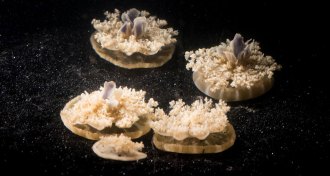 Animals
AnimalsTo test sleep, researchers don’t let sleeping jellyfish lie
Upside-down jellyfish are the first known animals without a brain to enter a sleeplike state.
-
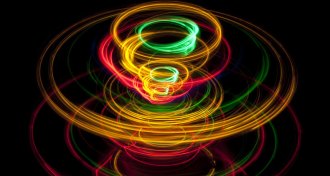 Physics
PhysicsTurning up the heat on electrons reveals an elusive physics phenomenon
Heating a strip of platinum creates a “spin current” in the material’s electrons due to the spin Nernst effect.
-
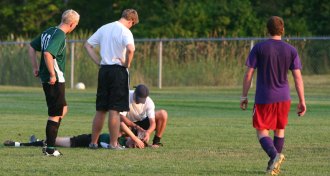 Health & Medicine
Health & MedicineAbout 1 in 5 teens has had a concussion
Almost 20 percent of U.S. teens have had at least one diagnosed concussion in the past, an analysis of a 2016 national survey finds.
-
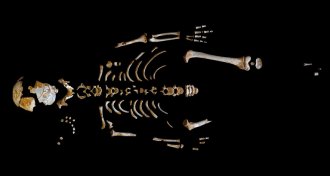 Anthropology
AnthropologyNeandertal kids were a lot like kids today — at least in how they grew
Ancient youngster’s spine and brain grew at relatively slow pace.
By Bruce Bower -
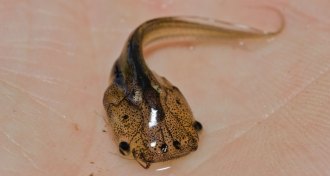 Health & Medicine
Health & MedicineFrom day one, a frog’s developing brain is calling the shots
Frog brains help organize muscle and nerve patterns early in development.
-
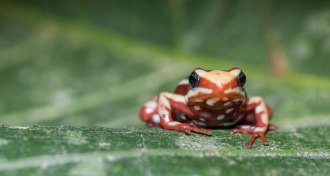 Environment
EnvironmentThe way poison frogs keep from poisoning themselves is complicated
Gaining resistance to one of their own toxins forced some poison dart frogs to make other genetic tweaks, too.
-
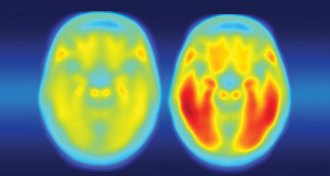 Neuroscience
NeuroscienceGene variant linked to Alzheimer’s disease is a triple threat
A genetic risk factor for Alzheimer’s disease works on multiple aspects of the disease, researchers report.
-
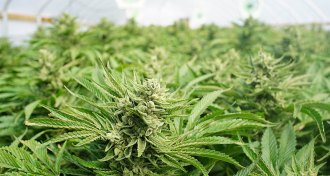 Psychology
PsychologyConfusion lingers over health-related pros and cons of marijuana
50 years ago, the effects of chronic marijuana smoking on mental health were hazy. They still are.
By Bruce Bower -
 Earth
EarthPlate tectonics started at least 3.5 billion years ago
Analyses of titanium in rock suggest plate tectonics began 500 million years earlier than thought.
-
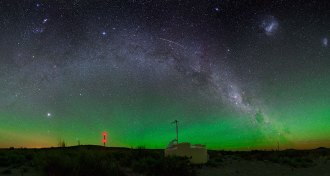 Astronomy
AstronomyUltrahigh energy cosmic rays come from outside the Milky Way
The biggest cosmic ray haul ever points toward other galaxies as the source of the rays, not our own.
-
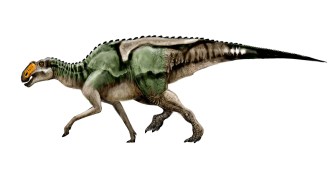 Paleontology
PaleontologyShhhh! Some plant-eating dinos snacked on crunchy critters
Scientists studying dinosaur poop found that some duck-billed dinos cheated on their vegetarian diets by snacking on crustaceans.
-
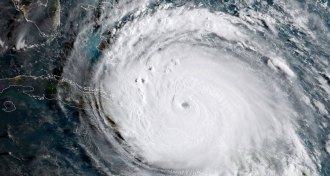 Earth
EarthIntense storms provide the first test of powerful new hurricane forecast tools
From Harvey to Maria, this year’s powerful hurricanes are giving scientists’ latest forecasting tools a trial by fire.